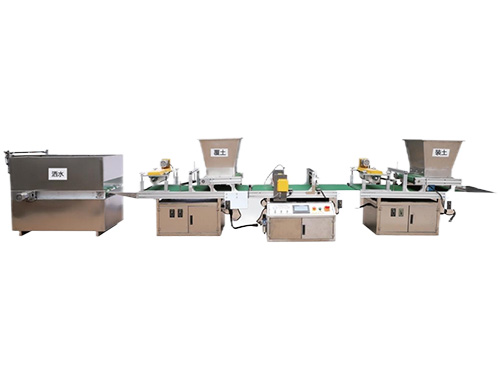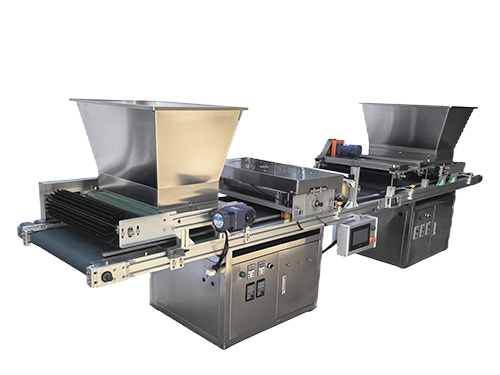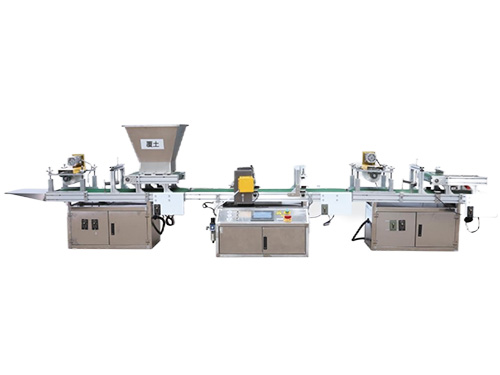The Environmental Potential of Root Trainers: Reducing Soil Pollution
2025-01-25 04:55:08
Introduction to Root Trainers and Their Environmental Impact
Root trainers are increasingly recognized for their ability to promote healthy plant growth. However, their environmental potential goes beyond improving seedling health. By supporting sustainable farming practices, root trainers can play a crucial role in reducing soil pollution. This article explores how root trainers contribute to environmental sustainability, focusing on their potential to reduce soil contamination and promote healthier, more resilient ecosystems.
How Root Trainers Contribute to Soil Health and Reduce Pollution
1. Preventing Root Disturbance and Soil Compaction
In traditional planting methods, seedlings are often transplanted with root systems that may be tangled or damaged, leading to root disturbance. When seedlings are placed into soil with damaged roots, it can result in poor root establishment, leading to soil compaction and other forms of soil degradation. Root trainers help prevent these issues by promoting the development of well-structured, fibrous root systems.
By encouraging healthier roots, root trainers contribute to improved soil structure. Plants with well-developed root systems are better at aerating the soil, allowing water to penetrate more easily and preventing the buildup of harmful pollutants that might otherwise leach into the soil.
2. Reducing the Need for Synthetic Fertilizers
One of the main sources of soil pollution in conventional farming is the overuse of synthetic fertilizers. These chemicals can leach into the soil, causing nutrient imbalances and contaminating water supplies. Root trainers support healthier plant growth by encouraging natural, efficient root systems that can access nutrients from the soil without the need for excessive chemical inputs.
In organic farming systems, where the use of synthetic chemicals is minimized or eliminated, root trainers are particularly valuable. By helping seedlings develop a strong, fibrous root system, root trainers reduce the need for synthetic fertilizers, thus mitigating the risk of soil pollution and nutrient runoff.
3. Supporting Organic Practices That Protect Soil
Organic farming, by definition, seeks to maintain and improve soil health through sustainable practices. Root trainers align with these principles by helping to produce healthy, resilient plants that thrive without the need for synthetic pesticides or fertilizers. In organic systems, this means that farmers can reduce the chemical load on the soil, leading to healthier ecosystems and less contamination.
Additionally, organic farming practices often involve crop rotation, mulching, and the use of organic compost. Root trainers complement these techniques by promoting efficient root growth and enabling plants to access nutrients and water more effectively, reducing the likelihood of soil pollution due to imbalances in soil fertility.
Reducing Plastic Waste: A Step Towards Sustainability
1. Biodegradable and Recyclable Materials
Traditional plastic pots and trays contribute significantly to plastic waste, as they often end up in landfills after use. Root trainers, on the other hand, are increasingly made from biodegradable or recyclable materials, which reduce their environmental impact. Many root trainers are designed to be reused or composted, further contributing to sustainability efforts in the agricultural industry.
By switching to root trainers made from eco-friendly materials, farmers can reduce the overall plastic waste produced by their operations. This is particularly important in the context of reducing environmental pollution, as plastic waste can take hundreds of years to decompose and can harm wildlife and ecosystems.
2. Long-Term Reduction of Environmental Footprint
The use of biodegradable or recyclable root trainers not only minimizes plastic waste but also reduces the long-term environmental footprint of farming operations. These environmentally friendly containers can break down naturally, enriching the soil without leaving behind harmful residues. This supports soil health and contributes to a cleaner, more sustainable environment.
The adoption of root trainers made from sustainable materials aligns with broader efforts to reduce agricultural pollution and promote responsible farming practices that prioritize environmental stewardship.
How Root Trainers Improve Soil Fertility and Promote Healthy Ecosystems
1. Encouraging Natural Soil Enrichment
Plants with healthy root systems are better at accessing and utilizing the nutrients in the soil. Root trainers facilitate the development of these systems by encouraging roots to grow downward and outward, rather than becoming tangled or root-bound. This leads to stronger plants that can better compete with weeds and access essential nutrients from the soil.
Healthy, well-established plants contribute to natural soil enrichment. As roots penetrate deeper into the soil, they help to break up compacted layers and promote the movement of water and air. This aeration allows beneficial microorganisms to thrive, leading to healthier soil ecosystems and improved nutrient cycling, which reduces the need for external inputs that can contribute to soil pollution.
2. Promoting Biodiversity Through Better Seedling Health
Root trainers can also support the growth of a diverse range of plant species, contributing to greater biodiversity on the farm. Biodiversity is essential for maintaining balanced ecosystems that can naturally regulate pest populations, improve soil quality, and reduce the need for chemical interventions.
By providing the ideal conditions for strong root development, root trainers enable farmers to grow a wide variety of crops with healthy root systems. This promotes plant diversity, which in turn supports ecosystem services such as pollination and natural pest control, reducing the overall environmental impact of farming.
How Root Trainers Help Minimize Soil Erosion
1. Stronger Root Systems Prevent Soil Erosion
Soil erosion is a significant environmental issue, particularly in areas where farming practices lead to the degradation of topsoil. Plants with weak or poorly developed root systems are more susceptible to being washed away by heavy rainfall or wind.
Root trainers help seedlings develop strong, fibrous root systems that anchor plants more effectively into the soil. This reduces the risk of soil erosion by stabilizing the soil and preventing the loss of valuable topsoil. In areas where soil erosion is a concern, the use of root trainers can be an effective tool in mitigating this problem.
2. Promoting Healthy Plant Establishment in Erosion-Prone Areas
In erosion-prone areas, it is crucial to establish plants that can hold the soil together and prevent further degradation. Root trainers enable farmers to grow resilient plants that are well-suited for such environments. With their enhanced root systems, plants grown in root trainers are better equipped to thrive in areas prone to erosion, helping to stabilize the soil and prevent further loss of topsoil.
Best Practices for Using Root Trainers to Reduce Soil Pollution
1. Choose Sustainable Materials
To fully harness the environmental benefits of root trainers, it is important to choose models made from biodegradable or recyclable materials. By selecting sustainable root trainers, farmers can minimize their environmental footprint and contribute to reducing plastic pollution.
Additionally, using root trainers made from natural materials such as bamboo or other biodegradable substances ensures that the containers will not contribute to long-term environmental harm when they are disposed of.
2. Proper Disposal and Recycling
After use, root trainers made from recyclable materials should be properly disposed of or recycled. By following best practices for recycling, farmers can ensure that their use of root trainers does not contribute to landfill waste. Many root trainers are designed for long-term reuse, so regular maintenance and proper cleaning can further reduce waste and promote sustainability.
Conclusion: Root Trainers as a Key Tool in Reducing Soil Pollution
Root trainers have significant potential to reduce soil pollution and promote environmental sustainability in agriculture. By encouraging the development of healthy, fibrous root systems, they help improve soil structure, reduce the need for synthetic fertilizers, and support organic farming practices. Additionally, root trainers made from biodegradable or recyclable materials help minimize plastic waste, further contributing to a cleaner environment.
As part of a broader strategy to promote sustainable farming, root trainers offer a practical solution to many of the environmental challenges faced by modern agriculture. By adopting root trainers in their operations, farmers can contribute to healthier soils, reduced pollution, and more resilient ecosystems.

It adopts electrical integration and can be started by pressing the fully automatic button ...

The XP750 seeder has stable performance, excellent product quality, simple and convenient o...

It adopts electrical integration and can be started by pressing the fully automatic button ...

Needle list Seed nozzle model Different models Sowing types are different...



